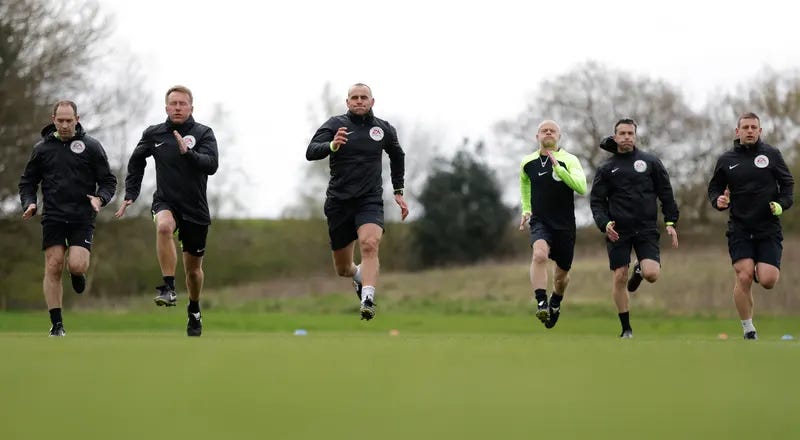Tough, demanding, continuous training vs rest, recovery & slowing down
It's important to train hard. But not too hard.
Some standout quotes from Pierluigi Collina’s The Rules of the Game.
…I normally advise youngsters who are just starting out to train as much as possible from the very beginning because they’ll feel the benefit of tough, demanding, continuous athletic training when they are a few years older.
I remain convinced…that as with players, the best referee trainer is the referee him[her]self. It is essential to know oneself and, away from the communal programs and objectives, each individual has to know when to accelerate and when to slow down.
During the summer break, the worst mistake you can make is to switch off completely, to interrupt your physical training for any considerable length of time.
Takeaway: If I want to make to the higher levels of refereeing, I need to start training for that now. That way over months and years, my body will continue to benefit from being used to working hard and training like a professional.
But that doesn’t mean my body doesn’t also need rest and recover through lower-impact training as well. Generally training hard doesn’t mean I don’t have days or weeks when I do lighter (or no) training and continue my focus on a good diet. This is especially true if I feel overworked or have picked up a knock. In these cases, lighter training and a focus on recovery will actually help minimize any time out with injury. Referee’s have to be self-reliant when it comes to training.
I just need to be careful about taking too much time off completely. I want to keep building on top of all the hard work I’ve put into fitness and that means keeping my muscles and lungs acclimated to doing hard work.
Simply put, I need to train hard but not too hard.
Know a soccer ref? Feel free to share this with them 💙




